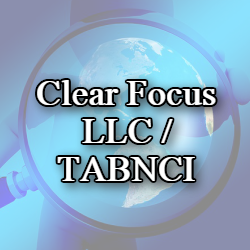When it comes to business leadership, there are few qualities as important as integrity and ethics. But those traits are hard to identify and almost impossible to quantify. Really, who decides whether you are an ethical business leader? How do you draw the lines? Or is the distinction completely subjective? Most would argue, and rightly so, that the most important job of a business leader is to ensure and drive the sustained success of the organization. But on the long and often bumpy business leadership journey, moral ambiguity is everywhere, tempting even the most ethical of us to maybe cut corners or unfairly stack the deck in our favor. But we are no longer operating in the ruthless world of Gordon Gecko, at least not most of us. Ethics and integrity matter and they reap massive rewards for business owners beyond their ability to sleep soundly at night.
Integrity-driven leadership is not just about being a good person. High ethical standards positively shape company culture, build trust and loyalty in employees, and attract customers who are increasingly seeking to align themselves with those organizations that share their same values.
In short, integrity and ethics are just smart business.
The great news is that if you as a business leader want to better embody and model the true spirit of integrity throughout your organization, the changes can start almost immediately. It is about walking the walk every day, even when tempted to do otherwise.
The following are five ways to foster a culture of integrity and ethics in your business:
1. Know It Starts at the Top: Understand that you and your actions are constantly under the microscope. Your leadership team is watching, your employees are watching, everyone is watching what you do and how you do it. It is important that business leaders realize that the respect and loyalty of all key stakeholders are affected by their actions, interactions, and decisions. By committing and adhering to ethical principles, business owners help create an appealing and compelling culture of integrity.
2. Inspire Trust: Employees are more likely to follow leaders who they perceive as trustworthy and honorable. Morality inspires trust throughout your team, so make sure your default approach to leadership includes transparency, openness, and approachability. Openly share with your team how your ethical standards relate to your decision-making process.
3. Enhance Employee Engagement: Ethical leadership fosters a culture in which employees feel valued, respected, and motivated to contribute their best, because those values are modeled for them every day. Recognize and reward ethical behavior, even when it doesn’t necessarily produce a profit or help the business hit a goal. The power and purpose of integrity lies beyond what it monetarily represents; it improves employee engagement and loyalty.
4. Navigate Challenges with Integrity: It is easy to be ethical when devoid of any challenges. It is when the going gets tough that ethics are more likely to slide. Truly ethical leaders demonstrate their integrity while in the throes of a crisis or moral challenge. The “just this once we are going to stray from our moral compass” is a poor excuse for doing the wrong thing. It is essential that business leaders, even when challenged to the max, make decisions based on their ethical principles. By doing so, they reinforce the organization’s commitment to doing what is right, even when the decision is difficult or unpopular.
5. Foster a Culture of Continuous Improvement: Even the most ethical business leader is going to fall short sometimes, as will their teams. Again, there is no yardstick or absolute when it comes to integrity; instead, it is important to create a culture of continuous learning, improvement, and accountability. Make integrity a central tenet of your leadership development program and provide training and resources throughout the organization that underscore the importance of ethical business practices.
Now take some time to think about your leadership style and the decisions you have made in the last five years. How did they affect your relationships with the key stakeholders in your business? Would you do anything differently?
We would love to hear your comments. Please contact us today!
Gary Brunson
gary@myclearfocus.com
Debra Rider
debra@myclearfocus.com
574.361.2674
Sustainable Growth & Profit Consultant, Coach, Mentor, and Counselor/Therapist for Business Owners and Professionals.


